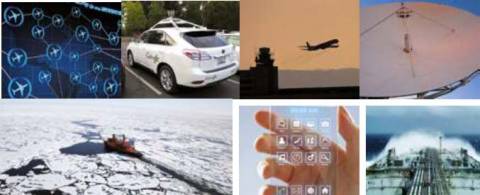Russia’s GLONASS satellite navigation system reportedly suffered another major disruption on Tuesday (April 15, 2014), with eight satellites malfunctioning and another going off the air entirely.
According to the Russian Interfax news agency as reported by the Moscow Times, eight GLONASS satellites malfunctioned for a half-hour period beginning shortly after 1 a.m. Moscow Time.
Russia’s GLONASS satellite navigation system reportedly suffered another major disruption on Tuesday (April 15, 2014), with eight satellites malfunctioning and another going off the air entirely.
According to the Russian Interfax news agency as reported by the Moscow Times, eight GLONASS satellites malfunctioned for a half-hour period beginning shortly after 1 a.m. Moscow Time.
A ninth satellite, GLONASS #730 stopped working completely at 10:20 p.m. on Monday, and remained in maintenance status as of today (April 16, 2014), leaving the system with only 23 operational satellites on the air. The constellation has four on-orbit spares, which system operators can call on to restore GLONASS to full operational capability.
Russia’s Izvestia news quoted Nikolai Testoyedov, general director at JSC Reshetnev Information Satellite Systems, which manufactures the satellites, as saying that the glitches occurred while work was being carried out to update the system.
The latest problems came just two weeks after all GLONASS satellites broadcast inaccurate data for more than 10 hours earlier this month.
Also on Tuesday, the GLONASS System Control Center announced that the most recently launched satellite, GLONASS-M #754 had been added to the GLONASS operational constellation as of 20:01 Moscow Time (UTC+4) on Tuesday (April 14, 2014).
The earlier lengthy outage, also blamed on an erroneous data uploaded, had prompted expressions of concern from GNSS experts.
Professor Chris Rizos of the School of Civil and Environmental Engineering at the University of New South Wales, Australia, said, “This catastrophic failure of one of the world’s two global satellite navigation constellations is a wakeup call for all of us. We ignore the possibility of these ‘Black Swan’ events at our own peril.”
Nunzio Gambale, CEO of Locata Corporation, which offers a terrestrial positioning technology, said, “There is no way you can iminterpret this clear sign of the elephant in the room. We have been telling the industry for years that you cannot have a critically important capability like GPS without also having a backup.”






